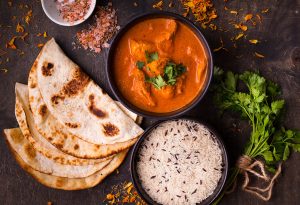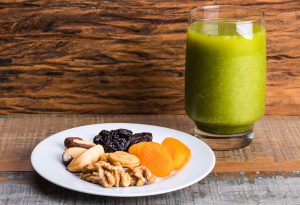Pregnancy is one of the most transformative stages in a woman’s life—both physically and emotionally. Along with the joy and anticipation of welcoming a new life comes a wide array of bodily changes, mood swings, energy fluctuations, and nutritional demands. One of the most critical responsibilities during this time is maintaining a well-balanced and nutrient-rich diet. What you consume during pregnancy doesn't just affect your health; it directly impacts the growth and development of your baby. This is why following a structured and well-thought-out pregnancy diet chart becomes essential.
Above all else, your meals should be designed to support both your body’s changing needs and your baby’s nutritional requirements. Nutrients like iron, calcium, folic acid, fiber, healthy fats, and protein play indispensable roles during pregnancy. It’s also important to focus on regular hydration, digestion-friendly foods, and smart portion control to ensure steady weight gain without overburdening your metabolism.
This complete pregnancy meal plan is tailored especially for women following a predominantly Indian diet, though it can be adapted to suit other preferences. It's loaded with balanced meals, practical snack options, and essential tips to support the overall well-being of both mother and child throughout all trimesters.
Why A Balanced Pregnancy Diet is Vital
Your baby receives all its nutrients directly from you. This makes your daily diet the baby’s primary source of vitamins, minerals, protein, and energy. Poor eating habits or nutrient deficiencies can lead to complications such as low birth weight, fatigue, gestational diabetes, or even developmental issues in the baby. On the flip side, a diet rich in variety and nutrients not only boosts your immunity and energy but also aids in better fetal development and smoother delivery.
A structured pregnancy diet also helps manage common pregnancy issues such as morning sickness, constipation, bloating, and hormonal fluctuations. Eating right can make a huge difference in how your body copes with these changes.
Key Guidelines for Expecting Mothers
Before jumping into the actual diet chart, let’s quickly run through some universally recommended guidelines for all pregnant women:
-
Stay hydrated by drinking 8–12 glasses of water per day. Coconut water, lemon water, and natural fruit juices are also excellent choices.
-
Opt for whole grains like oats, barley, jowar, ragi, and brown rice instead of refined grains.
-
Focus on fresh seasonal fruits and vegetables—raw salads, steamed veggies, and leafy greens should be on your plate every day.
-
Avoid processed foods, packaged juices, deep-fried snacks, and sugary drinks.
-
Take prenatal supplements such as folic acid, iron, calcium, and vitamin D as prescribed by your healthcare provider.
-
Include healthy fats such as omega-3 fatty acids found in walnuts, flaxseeds, chia seeds, and oily fish (if non-vegetarian).
-
Limit caffeine intake and completely avoid alcohol.
-
Eat smaller, more frequent meals rather than three large ones to manage hunger and digestion better.
Early Morning Remedies and Light Intake
Pregnancy often starts with waves of nausea, especially in the first trimester. These early morning symptoms can be tackled with small, calming foods and drinks:
-
A glass of lemon water with a dash of honey and ginger
-
Coconut water to maintain electrolyte balance
-
A few dry crackers or digestive biscuits kept by your bedside
-
A small bowl of curd with a pinch of roasted cumin
-
A few slices of raw cucumber or lightly salted apple slices
These light options can stabilize your stomach and give you a gentle start to the day without triggering queasiness.
Nutritious Breakfast Choices
Breakfast is not optional during pregnancy—it’s your most critical meal. Since you wake up after a long fasting period, your body requires refueling with energy-dense, nutrient-rich food. A good breakfast ensures stabilized blood sugar, sustained energy, and minimized mood fluctuations.
Here are several morning meal ideas:
-
A bowl of oatmeal topped with chopped fruits, almonds, and a glass of warm milk
-
Vegetable poha, rava upma, or vermicelli with boiled eggs or sprouts
-
Two soft chapatis with an egg omelet or paneer bhurji
-
Whole grain toast with cheese and tomato or a vegetable sandwich
-
Two stuffed parathas (dal, potato, spinach, or carrot filling) with a bowl of fresh curd
-
A smoothie made with banana, milk, soaked nuts, and a dash of cinnamon
All these combinations supply fiber, calcium, folate, protein, and healthy fats—nutrients your growing baby relies on.
Balanced Lunch Ideas

Lunch should be wholesome and balanced, including all macronutrients—carbs, protein, and fat—along with sufficient vitamins and minerals. Use ingredients like dals, legumes, rice, rotis, vegetables, and healthy oils (olive, mustard, rice bran) to create meals that satiate and energize.
Here are recommended lunch plate options:
-
Two rotis with dal, a bowl of curd, and a vegetable like mixed curry, paneer, or aloo palak
-
Brown rice with rajma or chole and salad on the side
-
Vegetable khichdi with a spoonful of ghee and cucumber raita
-
Chicken curry with two rotis and sautéed beans or spinach
-
Jeera rice with plain curd and sautéed okra or capsicum
-
Palak paneer with steamed rice and a dash of lemon for iron absorption
Lunch is also a good time to include folic acid-rich greens, vitamin C from citrus fruits or raw veggies, and fermented items like buttermilk or curd for better digestion.
Smart and Healthy Snacks
Pregnancy makes you feel hungry more often—and that’s perfectly normal. Instead of indulging in sugary, deep-fried items or processed foods, go for wholesome snacks that are light but nutrient-dense.
Some great snack options include:
-
A handful of roasted makhana, almonds, or walnuts
-
Mixed seeds (sunflower, flax, pumpkin) with dried figs or apricots
-
Vegetable idlis or whole-wheat dhokla
-
Bhakri or multi-grain khakhra with hummus or chutney
-
Fruit smoothies made with berries, banana, curd, and flaxseed
-
Grated carrot or lauki halwa made with jaggery and less ghee
-
Mixed sprouts or chana chaat with lemon and rock salt
-
Roasted chana, boiled peanuts, and a glass of lemon-mint water
These options provide satiety while supporting blood sugar balance and preventing common digestive discomforts like bloating or constipation.
Light and Nourishing Dinner Meals

Dinner during pregnancy should be early, light, and easy on digestion. Heavy meals close to bedtime can lead to bloating, disturbed sleep, and heartburn. Still, your dinner must be nutritionally complete.
Some excellent dinner meal ideas include:
-
Two jowar or bajra rotis with a bowl of dal, vegetable curry, and plain curd
-
One vegetable or paneer paratha with a glass of buttermilk
-
A bowl of mixed dal khichdi with a side of sautéed vegetables and cucumber raita
-
Vegetable pulao with palak raita and a slice of lemon
-
Grilled chicken breast with sautéed spinach and sweet potato mash
-
Quinoa salad with boiled chickpeas, cucumber, tomato, olive oil, and feta cheese (if dairy is allowed)
Incorporating complex carbs like whole grains, good proteins from dals and lean meats, and probiotics from curd helps you sleep better and keeps blood sugar levels steady overnight.
Pregnancy Diet: Additional Nutrient-Focused Tips
Your diet should not just focus on calories but on nutrition density—foods that offer maximum value per bite. Below are some key nutrients and their best sources during pregnancy:
Folic Acid
Folic acid prevents neural tube defects in the baby and supports brain and spinal development.
-
Found in: spinach, beetroot, oranges, chickpeas, lentils, fortified cereals
Iron
Helps make hemoglobin, which is essential as blood volume increases in pregnancy.
-
Found in: lean red meat (if non-vegetarian), lentils, tofu, dried fruits, spinach
Calcium
Crucial for bone and tooth development in the baby and to prevent bone loss in the mother.
-
Found in: milk, cheese, curd, sesame seeds, ragi
Protein
Supports tissue and organ development, especially in the second and third trimesters.
-
Found in: legumes, paneer, eggs, chicken, fish, soya
Omega-3 Fatty Acids
Supports brain development and vision in the baby.
-
Found in: flaxseed, chia seeds, walnuts, oily fish like salmon or sardines
Vitamin C
Improves iron absorption and supports immunity.
-
Found in: citrus fruits, tomatoes, bell peppers, kiwi
Fiber
Essential to prevent constipation, a common issue during pregnancy.
-
Found in: fruits with skin, whole grains, flaxseeds, bran, raw vegetables
Maintaining a food diary or a weekly meal planner during pregnancy helps track nutrition intake and makes it easier to plan meals based on seasonal produce. Don’t forget to wash all fruits and vegetables thoroughly, cook meats and eggs well, and store leftovers safely to avoid foodborne illnesses.
Sample Daily Pregnancy Diet Chart
Here’s how your daily meals might look when planned properly:
Early Morning:
-
Warm water with lemon and honey
-
Handful of soaked almonds or dates
Breakfast:
-
Vegetable poha with sprouts
-
Glass of milk or smoothie
-
Seasonal fruit
Mid-Morning Snack:
-
Curd with chia seeds or buttermilk
-
A banana or small bowl of papaya
Lunch:
-
Two rotis with dal and palak paneer
-
Small serving of brown rice with mixed vegetable curry
-
Fresh salad and glass of lemon water
Evening Snack:
-
Roasted makhana or boiled corn
-
Herbal tea or coconut water
Dinner:
-
Vegetable khichdi with bottle gourd curry
-
Buttermilk and half roti or phulka
Before Bed (optional):
-
Warm milk with a pinch of turmeric or nutmeg
Final Thoughts: Supporting Both You and Your Baby
The food you eat during pregnancy has a profound impact on your baby’s health—even well before birth. Beyond just eating for two, you're eating for development, immunity, brain formation, and long-term well-being. A good pregnancy diet chart doesn’t just ensure that your nutritional needs are met—it also forms a positive foundation for your baby’s lifelong health.
Always consult your gynecologist or a licensed nutritionist before making any significant changes to your diet. Every woman’s pregnancy is different, and what works best for one may not work the same for another. Supplements may also be necessary depending on your blood tests and health status.
While your cravings may sometimes conflict with your nutritional goals, remember: balance is key. Indulge occasionally, but let most of your food choices be smart, colorful, and beneficial.












